-
About
- About Listly
- Community & Support
- Howto
- Chrome Extension
- Bookmarklet
- WordPress Plugin
- Listly Premium
- Privacy
- Terms
- DMCA Copyright
- © 2010-2025 Boomy Labs


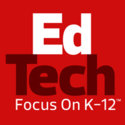 Frank Smith
Frank Smith
Listly by Frank Smith
Nominations for EdTech magazine's annual list of must-read K-12 educational technology blogs. For more info, check out last year's list: http://www.edtechmagazine.com/k12/article/2015/04/50-must-read-it-blogs-2015

With a combination of product-related best practices and reviews, general edtech info, opinion pieces, and guest bloggers, the goal of our blog is to provide educators with a powerful, well-curated resource for all things edtech, with a special emphasis on Chrome and Chromebook-powered school deployments.
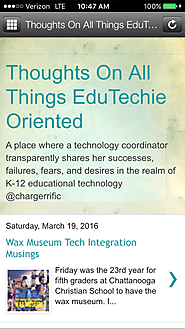

Look no further than Wanda Terral's blog if you need some quick tech tips on classroom software. Terral is the instructional technology specialist with the Lakeland School System in Tennessee. Her blog is filled with brief guides and advice on using Google tools in the classroom.
From the perspective of a Technology Integration Specialist, Maker Ed educator, and Google Certified Trainer, Michael Fricano II. I share EdTech related news, tutorials, reviews, and opinions. I also promise not to flood your reading experience with paid ads!

Teacher Tech is a website/blog created by Alice Keeler on educational topics such as Google Classroom, Google Apps, 3D printing, coding, common core, and teaching in the 21st century.

The Shake Up Learning Blog by Kasey Bell offers educational technology and digital learning resources, tips and tricks, tutorials, Google cheat sheets and more to educators across the globe.

Steven W. Anderson is a Dad, Learning Evangelist, Speaker and Author. After a successful career in public education as a Teacher, Instructional Technologist, and Director of Instructional Technology, Steven works with educators across the globe as a consultant. Highly sought after for his skills in helping educuators and school leaders better understand technology and social media through his humorous approach to learning, Steven can work with you to improve learning for all students.

A blog out integrating technology in the classroom by Mickey McFetridge. McFetridge has over a decade of experience in the classroom and several years of leading professional development. He has become a leader in the area of EdTech through training teachers and administrators in implementing 1:1 technology in their schools. Mickey has also sat on Arkansas' K-8 Computer Science Standards committee, the first in the country to implement coding standards for every student.
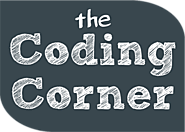
A blog full of tips, resources, and practical advise for elementary coding teachers. The Coding Corner's author, Grant Smith, is a K-8 CS consultant, teacher trainer, and curriculum developer. His close ties to primary coding classrooms make his posts relevant and useful. At the same time, his experience in leading district wide CS for All initiatives before it was cool (I guess that makes him a hipster) makes the information on his blog both cutting-edge and innovative. Smith also recently won the 2015 Digital Innovation in Learning Award - Administrator Trailblazer for employing an audacious idea in order to empower teachers and students with the opportunity to learn district-wide.

Dr. Jenny Grant Rankin, who teaches the PostDoc Masterclass at University of Cambridge, is an award-winning educator and author who has been a junior high teacher, school administrator, school district administrator, and chief education & research officer (at Illuminate Education, an edtech). She is a tireless advocate for the improvement of edtech, particularly data systems. Dr. Rankin advocates for research-based ways edtech such as data systems can be changed to make educators’ jobs easier. Her books and her TED Talk cover this topic, as does Dr. Rankin’s Over-the-Counter Data blog.

My name is Jonathan Wylie. I’m a certified teacher with 10 years classroom experience. I’ve taught in Scotland, England, and more recently, America. I’ve also worked as a freelance writer for a number of online blogs and publications like Scholastic, Microsoft EDU, ioSafe, PC World, the TechMediaNetwork, and more.

Here you’ll find thoughts on change, learning, 21st Century teaching, and all the latest updates on Powerful Learning Practice and what we’re doing. Dive in.

Ms. Drasby is a K-12 Teaching Assistant & Google Educator who is Passionate about integrating Ed Tech. Through her blog she shares innovative ideas along with tips, tricks and templates in hopes of simplifying the process for integrating technology in the classroom. Ms. Drasby believes global collaboration can help lessen the stress load placed on teachers along with supporting a more student focused community.
Amy Mayer has been a wonderful source of information and cutting edge ideas for the use of technology in the classroom for many years. She can always be relied on to provide easy to follow instructions that even non-"techy" types can understand!
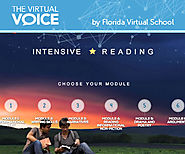
Florida Virtual School pledges to deliver original and compelling content – providing fun resources, educational insights, and unique perspectives into online learning for students, parents and educators. We know that everyone has a story to tell and we encourage dialogue that is thoughtful and thought-provoking. Each blogger’s contribution represents their individual opinion and does not represent the opinion of Florida Virtual School.

Michael is a worldwide authority on educational reform with a mandate of helping to achieve the moral purpose of all children learning.
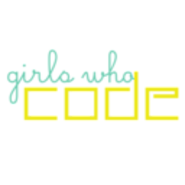
We are Girls Who Code and together we're debugging the gender gap! Join the movement!
Texas [Ed]Tech addresses all aspects of educational technology, from practice and philosophy to pedagogy and professional development.

It’s often referenced but not always practiced nor understood. The term “formative assessment” gets thrown around a great deal in educational contexts. Initiate a conversation with a half-dozen educators and you’ll likely hear six different definitions and nearly as many viewpoints on proper implementation. That assessing student learning progress in a formative manner within the … Continue reading Improving Student Learning: The Present and Future of Formative Assessment
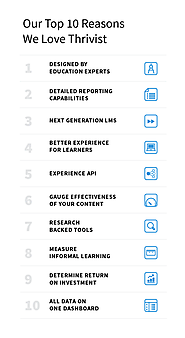
With so much discussion about 21st Century learning goals, it is easy to shift focus to the technological advances and away from what really matters – the student. As a technology company, we recognize that it’s not about us, it’s about the student. Helping students prepare for the 21st Century global economy does not mean just putting the latest technology fad in their hands. Technology plays a role but only when its use promotes better learning outcomes.

When I made the decision to pursue a career in education, the idea of making a difference in the lives of students was at the heart of it. I think most people in the education sector can relate to this sentiment. At the heart of everything is the student. We want to inspire them, expand their knowledge, and help them to discover things for themselves.
